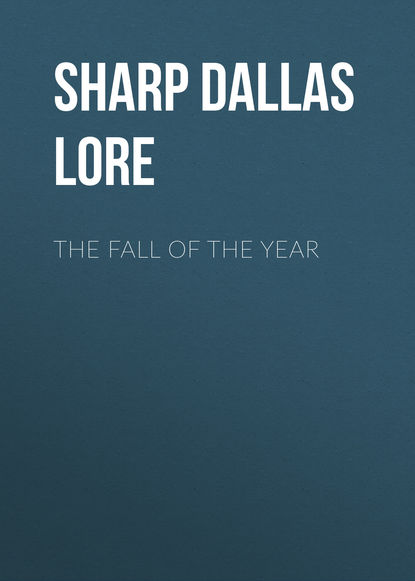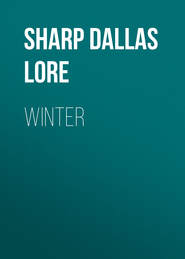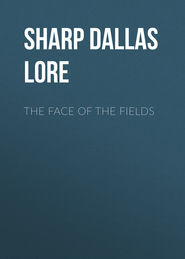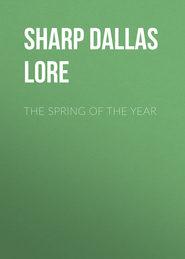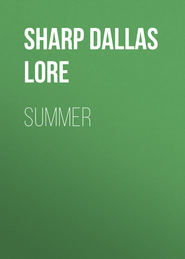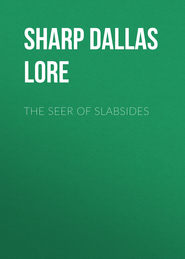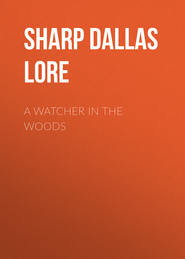По всем вопросам обращайтесь на: info@litportal.ru
(©) 2003-2024.
✖
The Fall of the Year
Настройки чтения
Размер шрифта
Высота строк
Поля
CHAPTER IX
TO THE TEACHER
Let the pupils continue this list of examples of winter preparations by watching and observing for themselves. Every field, every tree, every roadside, will reveal the work done or going on under their eyes. Without preaching you may draw many an interesting and telling parallel with their own preparation – in school for instance.
FOR THE PUPIL
Page 67
“The north wind doth blow,
And we shall have snow,
And what will the Robin do then,
Poor thing?”
Where does the verse come from? Mother Goose? Yes, but who was she?
Chipmunk: Our little striped ground squirrel, interesting because he has cheek-pouches and thus forms a link between the arboreal squirrels (gray squirrels, etc.) and the ground squirrels or spermophiles, of which the beautiful little thirteen-lined squirrel of the prairies is an example.
Whitefoot, the wood mouse: The white-footed or wood mouse or deer mouse.
Page 68
Not so much as a bug or a single beetle’s egg has he stored: Why not, seeing that these are his food?
a piece of suet for him on a certain lilac bush: Whose bush might it be? Is there a piece on yours?
upon the telegraph-wires were the swallows – the first sign that the getting ready for winter has begun: What kind or kinds of swallows? Have you any earlier sign?
Page 69
the few creatures that find food and shelter in the snow: Name four of the animals that so find their food and shelter. Are there any others? Look them up.
Page 70
there will be suffering and death: In your tramps afield this winter look out for signs of suffering. There are many little things that you can do to lessen it – a little seed scattered, a piece of suet nailed up on a tree, a place cleared in the snow where gravel stones can be picked up.
or even three hundred pounds of honey: By not allowing the bees to swarm, and thus divide their strength, bee-keepers often get more than three hundred pounds of comb-honey (in the little pound boxes or sections) from a single hive. The bees themselves require only about twenty to twenty-five pounds to carry them through the winter.
Page 71
the witch-hazels: The witch-hazels do not yield honey so far as the author has observed. Suppose you watch this autumn to see if the honey-bees (do you know a honey-bee when you see her?) visit it. Whence comes this quotation? From which poem of Bryant’s: —
“when come the calm, mild days.”
put on their storm-doors: In modern bee-hives there is a movable board in front upon which the bees alight when entering the hive; this can be so turned as to make a large doorway for the summer, and a small entrance for the cold winter.
whole drove of forty-six woodchucks: The author at one time had forty-six inhabited woodchuck holes on his farm.
Page 72
as Bobolink among the reeds of the distant Orinoco: The bobolink winters even farther south – beyond the banks of the Amazon.
to sleep until dawn of spring: What is the name for this strange sleeping? What other American animals do it? Name three.
Page 73
frogs frozen into the middle of solid lumps of ice: Of course, this was never done intentionally: each time the frogs were forgotten and left in the laboratory, where they froze.
Page 74
they seem to have given up the struggle at once …: This may not be the explanation. One of the author’s friends suggests that it may have been caused by exposure, due to their having been frightened in the night from their usual bed and thus forced to roost where they could until morning.
Page 75
timothy: “Herd’s-grass” or “English hay” – as it is sometimes called in New England.
plenty for the birds: What are the “weeds” made for? You growl when you are set to pulling them in the garden. What are they made for? Can you answer?
CHAPTER X
TO THE TEACHER
Perhaps you are in a crowded school-room in the heart of a great city. What can you do for your pupils there? But what can’t you do? You have a bit of sky, a window surely, an old tin can for earth, a sprig of something to plant – and surely you have English sparrows behind the rain pipe or shutter! You may have the harbor too, and water-front with its gulls and fish, and the fish stores with their windows full of the sea. You have the gardens and parks, burial-grounds and housetops, bird stores, museums – why, bless you, you have the hand-organ man and his monkey; you have – but I have mentioned enough. It is a hungry little flock that you have to feed, too, and no teacher can ask more.
FOR THE PUPIL
Page 76
An English sparrow: Make a long and careful study of the sparrows that nest about you. If you live in the country try to drive them away from the bluebird house and the martin-boxes. The author does not advise boys and girls to do any killing, but carefully pulling down a sparrow’s nest with eggs in it – if you are sure it is a sparrow’s nest – is kindness, he believes, to the other, more useful birds. Yet only yesterday, August 17th, he saw a male sparrow bring moth after moth to its young in a hole in one of the timbers of a bridge from which the author was fishing. It is not easy to say just what our duty is in this matter.
Page 77
clack of a guinea going to roost: The guinea-fowl as it goes to roost frequently sets up a clacking that can be heard half a mile away.
an ancient cemetery in the very heart of Boston: The cemetery was the historic King’s Chapel on Tremont Street, Boston. Some of the elm trees have since been cut down.
Page 78
Cubby Hollow: a small pond near the author’s boyhood home, running, after a half-mile course through the woods, into Lupton’s Pond, which falls over a dam into the meadows of Cohansey Creek.
on the water: What water is it that surrounds so large a part of the City of Boston?
Page 79
the shuttered buildings: Along some of the streets, especially in the wholesale district, the heavy iron shutters, closed against the high walls of the buildings, give the deserted streets a solemn, almost a forbidding aspect.
facing the wind: like an anchored boat, offering the least possible resistance to the storm.





